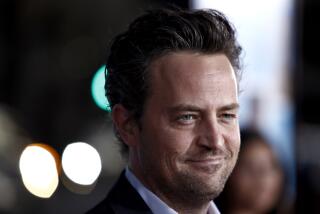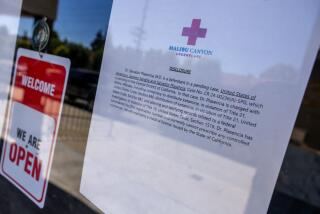Conrad Murray defense team had little chance, experts say
- Share via
Defense attorneys fighting to acquit Michael Jackson’s personal physician of an involuntary manslaughter charge in the pop star’s death faced what many legal experts said was a series of insurmountable obstacles.
The lawyers had to overcome an incriminating interview their client gave detectives; contend with a victim loved by millions around the globe; and deal with a series of court rulings that limited their attempts to point the finger at another possible culprit: The King of Pop himself.
Jurors were not allowed to hear evidence that Dr. Conrad Murray’s defense team hoped would bolster their argument that Jackson was so drug-addled and starved for sleep that he accidentally overdosed on a surgical anesthetic as he prepared for a long-awaited comeback tour.
PHOTOS: The trial of Dr. Conrad Murray
Even a key defense witness inflicted damage to the physician’s case. Murray’s medical expert conceded last week that the Houston cardiologist violated medical standards by administering the powerful sedative propofol in the bedroom of Jackson’s rented Holmby Hills home.
“The defense was hamstrung from the get-go,” said defense lawyer Mark Geragos, who represented Jackson in the early stages of the singer’s trial on child molestation charges nearly a decade ago.
Veteran defense lawyer Robert A. Schwartz said he was surprised that Murray’s lead attorney, the Texas-based lawyer Ed Chernoff, didn’t emphasize more that most accusations against physicians are handled in civil, not criminal, court. Nevertheless, Schwartz described an acquittal as a long shot and said Chernoff’s best hope was to try to sway one or two jurors to cause a deadlock.
“I wouldn’t expect that 12 jurors would all vote not guilty,” Schwartz said.
Prosecutors argued that Murray, hired as Jackson’s $150,000-a-month concert doctor, bore criminal responsibility for his death on June 25, 2009. They said he injected Jackson with a drug, propofol, that should never be used outside a surgical setting and then left him unattended.
Deputy Dist. Atty. David Walgren pointed to a 21/2-hour interview Murray gave Los Angeles police robbery-homicide detectives two days after Jackson’s death. During the interview, Murray admitted treating his patient’s chronic insomnia with propofol — “milk,” as Jackson called it — but said he was trying to wean the singer off the drug. He acknowledged administering the anesthetic to Jackson on the night of his death and leaving the pop icon alone so the doctor could use the bathroom.
Murray’s defense team tried to introduce evidence developing their contention that Jackson was hooked on the narcotic Demerol, financially desperate and under intense pressure to deliver on his comeback tour to pay off debts and resurrect his music career.
But the defense strategy sustained a blow before the trial when Superior Court Judge Michael Pastor barred Murray’s attorneys from calling more than a dozen witnesses. The judge ruled that their testimony would divert jurors from what should be the focus of the trial: whether Murray acted recklessly or with criminal negligence during his care of Jackson.
“The defense’s best argument was the one they couldn’t fully make — that Michael Jackson was an accomplice to his own death and Dr. Murray was merely a scapegoat for a high-profile client,” said Loyola Law School Professor Stan Goldman.
Walgren argued that numerous actions by Murray that night amounted to criminal negligence, making the physician responsible for Jackson’s death regardless of who injected the lethal dose. Witnesses testified that Murray delayed in calling 911, failed to tell medics and doctors about the use of propofol and did not keep medical records of the drugs he administered.
Vesna Maras, a former Los Angeles County prosecutor, said the prosecution’s evidence was overwhelming. Murray’s conduct was so egregious, she said, that jurors probably would have reached the same verdict even if they had heard the excluded witnesses.
“Can you imagine what would happen if that was allowed in every clinic in L.A. where the patient tells you what medication they need and the doctor is, ‘Oh, OK,’ ” she said. “That’s the amount of judgment Murray exercised in this case.”
Times staff writers Harriet Ryan and Victoria Kim contributed to this report.
More to Read
Sign up for Essential California
The most important California stories and recommendations in your inbox every morning.
You may occasionally receive promotional content from the Los Angeles Times.














